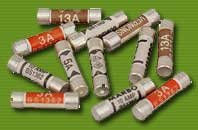


• Persons proposed as Qualified Supervisors, who must be a full-time principal or employee of the business, and have at least a City & Guilds 2381 qualification or equivalent. (See below for equivalent qualifications)
Other qualifications that will satisfy this requirement are:
• Domestic Electrical Installer Qualification - (National Accredited Qualification)*
• City & Guilds 2380 (16th Edition) Certificate
• City and Guilds 2400 – (Design, Erection and Verifications of Electrical Installations)
• City & Guilds 2360 Part 2 (Electrical Installation Competencies) awarded in 1993 or later
• NVQ/SVQ level 3 in Electrical Installation work awarded in 1993 or later
• The Scottish Qualification Authority Tailored Award in Design and Verification of Electrical Installation
• At least £2 million Public Liability insurance cover
• Customers must be offered a warranty
If you can meet these requirements; please see our list of certification body's in step 3 (here)
If you cannot meet these requirements, find information about training courses suitable to meet the requirements in step 2 (here)

CITY AND GUILDS Courses. These courses are available throughout the UK, often at higher education establishments. Details of all the courses and where to attend are available on www.city-and-guilds.co.uk.
Information on:
• City and Guilds 2360
• City and Guilds 2381
• City and Guilds 2400
A Learners Guide to City and Guilds Electrotechnical courses is available in PDF format
DOMESTIC Electrical Installer Qualification and NVQ/SVQ's. This National Accredited Qualification is operated by a range of independent training initiatives. For details on what they are and who runs them visit:
• Government Direct learning website
• the Qualifications Curriculum Authority website
• www.techniquetraining.co.uk runs one such course.
SCOTTISH QUALIFICATIONS AUTHORITY, also run courses in electrical installation, visit their website for more information.

|
BSI - British Standards Institution
Tel: 01442 230 442 Email: product.services@bsi-global.com Web:www.bsi-global.com/kitemark |
||
|
NICEIC Certification Services Ltd
Tel: 0800 013 0900 Email: partp@niceic.org.uk Web: www.niceic.org.uk |

